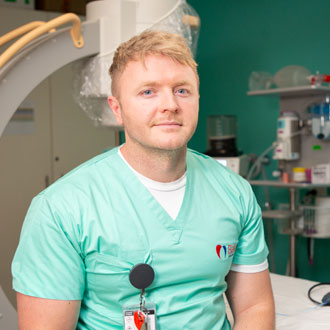Dr Daniel Donner
PhD | BBiomedSc | MMedRes | GCResMgt | CertLeadership, Harvard University

Dr Daniel Donner is a Shine On Foundation Fellow and leads the Baker Institute’s Translational Cardiology Centre — a large team of specialised senior research and technical officers, PhD, honours, and medical students with extensive expertise translating research questions from the bedside to bench and bench to bedside. He is the Principal Investigator (PI) for numerous projects and leads the Consequences of Heart Attack (CoHA) Research Group. Through the Translational Cardiology Centre, Dr Donner has rapidly grown and maintains an extensive network of clinical collaborators domestically and internationally.
Dr Donner has >30 career peer-reviewed papers with many in top-ranking cardiology and physiology journals, and over >1000 citations. He has received the John Funder Early Career Scientist Award, ISHR Early Career Investigator Prize, and Annual Institute Awards for Scientific Excellence, Integrity, and Responsible and Effective Use of Donor Funds. Dr Donner has attracted ~$5M in competitive research funding from the National Heart Foundation, NHMRC and industry partners, as well as >$50K in awards and travel grants.

